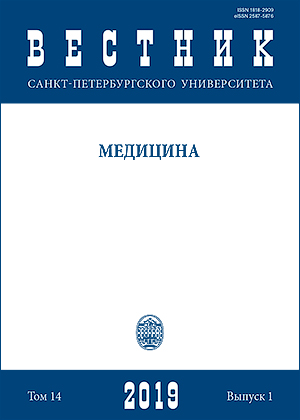The role of Dutch representatives in the development of medicine in Russia from the 9th to the 13th century
DOI:
https://doi.org/10.21638/11701/spbu10.2019.106Аннотация
This article presents the period of development of medicine in Russia from the beginning of the 9th century until the end of the 18th century. Before 1613, most of the population in Russia did not have access to qualified medical care and relied on traditional folk remedies. After conversion of Kievan Rus’ to Byzantium Christianity, monks provided basic medical care in the monasteries along with folk healers. At the same time, the ruling classes had access to qualified medical assistance, which was provided by foreign physicians. During the reign of Mikhail Fyodorovich Romanov (1613–1645) many foreign doctors were invited to Russia, including representatives of the Netherlands, graduates of the Leiden University. The development of medical education in European areas was largely carried out by foreign doctors, in particular,doctors from Holland. Hermann Kaau-Boerhaave and Pavel Zakharievich Condoidi, Dutch representatives and graduates of the Leiden University played a particularly important role in the development of Russian Medicine in the 18th century. In 1654 the first medical school was opened in Russia. State institutions were established to organise and supervise the work of pharmacists, doctors medicinae and barber-surgeons. The treatment of patients in the 17–18th centuries advanced from primitive folk to more advanced methods based on science including surgical interventions.
Ключевые слова:
history, medicine, Peter the Great, Bidloo, Boerhaave, The Netherlands, Russia (pre-1917)
Скачивания
Библиографические ссылки
References
Загрузки
Опубликован
Как цитировать
Выпуск
Раздел
Лицензия
Статьи журнала «Вестник Санкт-Петербургского университета. Медицина» находятся в открытом доступе и распространяются в соответствии с условиями Лицензионного Договора с Санкт-Петербургским государственным университетом, который бесплатно предоставляет авторам неограниченное распространение и самостоятельное архивирование.




